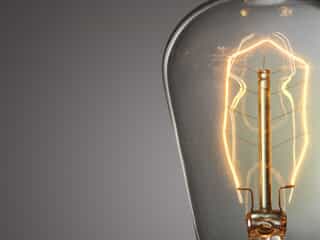Determining the amount of power needed by an air conditioner is a challenging task. That’s because it depends on various factors, including its size and model, various characteristics of your residence, and the age of the AC system. Although you can research the number of watts a particular AC uses and then compute your unit’s usage, the number you get will still be a rough estimate. Generally, central air conditioning systems draw lots of power every time they switch on, and telling how efficiently your unit is working is difficult. Continue reading to know more about your AC’s energy consumption and how you can lower your electricity bills.
How Much Power Do Air Conditioning Units Consume?
As technology continues to advance, central air conditioning systems are becoming more popular among many homeowners. According to statistics, 90% of new homes in America utilize these units. In addition, they are the biggest air conditioning systems, both in energy consumption and size.
A central AC utilizes your house’s ductwork to deliver cool air throughout your home without installing individual window units. However, these comforts and conveniences usually come at a cost. An average central air conditioner uses 12,000 BTUs, or 3,500 watts of electricity, per hour. When running the unit at fan-only mode, it consumes approximately 750 Watts.
If a central air conditioner is not an option for your apartment or home, finding a suitable window AC can help keep your residence comfortable during the hot months without spending a fortune. The energy consumption of these systems is usually less than that of central air conditioning. The approximate energy consumption is 500 watts, 900 watts, and 1,440 watts for small, medium, and large models, respectively.
Factors Influencing Your AC's Energy Consumption
Various factors determine the number of watts your air conditioner needs to function properly. They include:
AC size – When purchasing an air conditioning unit for your home, you need to select the best unit based on the space you intend to cool, not the wattage. A small unit will overwork the system to keep your home comfortable. Buying an oversized system, on the other hand, will hinder your unit from operating efficiently. That’s because it’ll cool your living space quickly, leaving excess moisture in the air. Excess humidity will make your home feel uncomfortable and also encourage mold growth in the long run.
AC age – Older air conditioners that were developed using older technology use electricity less efficiently. Also, if you fail to service the older unit regularly, it’s more likely to consume more wattage to maintain the needed temperatures.
Type of AC unit – Central air conditioning units use more wattage than window split units. The type and brand of the AC will also influence the watts the unit uses. When purchasing an AC, check its SEER number. According to experts, the higher the unit’s SEER number, the more efficiently it will operate.
Costs Of Running An AC Unit
Our monthly electricity bill usually depends on the local rates. However, there are several ways to approximate your expenses. According to Energy Star, the average American homeowner spends around $1,000 every year on cooling and heating expenses; on average, this equates to 50% of a home’s total electricity bills. If you live in a warmer region, cooling costs can account for about 70% of your summer energy bills. If you do the math, all that will add up to a lot of money, meaning you need to come up with ways to help you conserve energy.
How To Reduce Your AC's Energy Consumption
Once you have invested in the right-sized air conditioning unit, you need to keep the system running effectively. That means changing the unit’s filters regularly, keeping the outside system clear of debris, and scheduling annual service checks.
Close your doors and windows, especially during the summer season, to prevent sun rays from making your residence unnecessarily hot. Otherwise, your AC unit will have to work extra harder to cool your home, leading to high energy consumption. Also, set your AC system correctly to avoid overcooling.
Bottom Line
Your air conditioning unit is one of the largest energy consumers in your home. However, by knowing your AC’s power consumption, you can adjust some habits to reduce your energy usage and bills. First, have a professional HVAC technician from True Heating & Cooling assess the characteristics of your residence and the existing equipment. Then, once you know the correct-sized AC unit for your living space, you can begin looking at other features like energy efficiency.
Our company offers air quality, heating, and cooling services within Broomfield, CO, and the surrounding area such as repair and maintenance. Contact us now to learn more about air conditioners’ energy consumption, and we will be glad to help.

